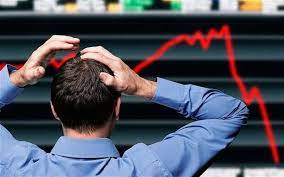Engineer,IBM | Posted on | Share-Market-Finance
Is someone else is losing money when I am making money in stock market?
Stock Market Investment Adviser | Posted on
We all know that Stock Market is short of business where the owner (trader) buy the product(shares) in a very low cost and then sell it when they get a proper rate to get a profit. Take an example where a businessman starts a business, he purchases some goods and keeps them for selling in the market. He purchases every single piece at 100 Rs and then put it into the market for sale at Rs 125.
He sells half of his products at Rs 125 to a customer, but after sometimes he thinks to sell his product at Rs 150 or above. He keeps on waiting for a customer who buys their product at their decided price. After some time the value of that product keeps on fluctuating high or low, but then also businessman does not sell his product. On the other hand, another businessman buys the same product at Rs 70 and sells all their product at Rs 130, Rs 140 or Rs 145 and gets a profit. After an instant, the value of that product becomes constant very less not more than Rs 75 or Rs 80. So at this point, the first Businessman comes in a loss and now he has to sell their product less than their purchase value, but at this instant, the second businessman will remain in profit because he purchases the product at a very low cost less than the current value of the product.
In the same way, most of the traders lose their money at one point but at the same time, there are so many other traders also who make money at that instant.
How to Earn Money with Instagram?

0
0 Comment
System Engineer IBM | Posted on
This question has created quite a buzz around us, and I’ll admit that not many people answer this question in a way that would really satisfy you completely. After having asked so many of my very trusted friends who wished to give their opinion on this, I came to this conclusion.
It basically depends. But mostly, in stock market, it can really become a win-win situation. Both the parties, the buyer and the seller, can benefit from the purchases that are done.
In stock market, basically, a seller is selling his product. The seller is looking forward to earn the most amount of profit he can earn by selling that particular product. On the other hand, the purchasers would bid on how much they’d buy the product for. The value of the product will gradually rise as more and more purchasers would appear, wishing to buy that item. Thus the seller can earn great profits if the value of his products rises by a significant amount.
However, the seller might not be able to earn that profit if the value of the product drops due to one reason or the other. Maybe another item like the one you own is now available in the stock market, being sold at a lower rate than yours, or maybe the people don’t feel the need to buy your product anymore. In that case, the seller will gradually decline, as he won’t be earning any profits. So this leads to losses on the seller’s front.
But the losses that the seller encounters don’t really go into anyone else’s pockets. For example, if a seller is unable to sell his products, the investment he did on that product would just vanish into thin air. It won’t benefit anyone at all, thus one’s loss does not lead to another’s gain.
0
0 Comment
Pharmacist | Posted on
0
0 Comment
Profession and blogger by hobby | Posted on
0
0 Comment
